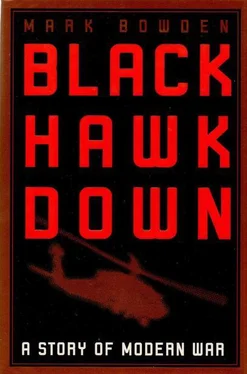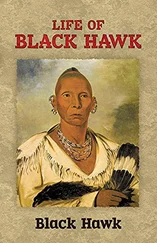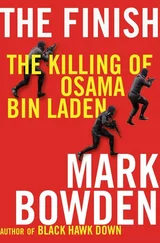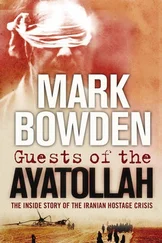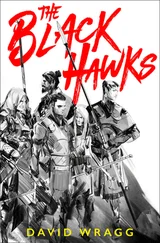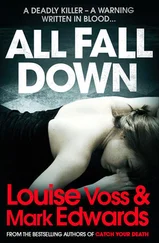Mark Bowden - Black Hawk Down
Здесь есть возможность читать онлайн «Mark Bowden - Black Hawk Down» весь текст электронной книги совершенно бесплатно (целиком полную версию без сокращений). В некоторых случаях можно слушать аудио, скачать через торрент в формате fb2 и присутствует краткое содержание. Город: New York, Год выпуска: 1999, ISBN: 1999, Издательство: Atlantic Monthly Press, Жанр: nonf_military, на английском языке. Описание произведения, (предисловие) а так же отзывы посетителей доступны на портале библиотеки ЛибКат.
- Название:Black Hawk Down
- Автор:
- Издательство:Atlantic Monthly Press
- Жанр:
- Год:1999
- Город:New York
- ISBN:978-0871137388
- Рейтинг книги:3 / 5. Голосов: 1
-
Избранное:Добавить в избранное
- Отзывы:
-
Ваша оценка:
- 60
- 1
- 2
- 3
- 4
- 5
Black Hawk Down: краткое содержание, описание и аннотация
Предлагаем к чтению аннотацию, описание, краткое содержание или предисловие (зависит от того, что написал сам автор книги «Black Hawk Down»). Если вы не нашли необходимую информацию о книге — напишите в комментариях, мы постараемся отыскать её.
Black Hawk Down — читать онлайн бесплатно полную книгу (весь текст) целиком
Ниже представлен текст книги, разбитый по страницам. Система сохранения места последней прочитанной страницы, позволяет с удобством читать онлайн бесплатно книгу «Black Hawk Down», без необходимости каждый раз заново искать на чём Вы остановились. Поставьте закладку, и сможете в любой момент перейти на страницу, на которой закончили чтение.
Интервал:
Закладка:
The dead and wounded were headed home, but they weren’t out of danger yet.
Sgt. Cash, now in the third humvee, saw a Somali with an RPG launcher pop up from behind a brick wall. There was a bright flash and a bang.
At the same moment, in the back of the humvee, Spec. Dale Sizemore had spotted a row of Somalis, their heads poking over a concrete wall. He had thrown himself backward in order to get a better shot at them when he felt the vehicle lurch. The blast underneath threw the humvee in the air. The men inside felt their stomachs drop. It was as if they had flown off the end of a ramp.
They crashed back to earth on all four wheels, unharmed and still moving. With no time to react to what had just happened, Cash pointed to a Somalian gunner up a tree. Both Sizemore and the humvee’s .50-cal gunner started blasting away. A Somali fell out of the tree to the street.
Then Cash felt a jab in the leg. He thought he’d been shot. He looked down and saw instead that a bullet had poked through the metal door of the humvee and had been caught by the window, which was rolled down, forming a second layer inside the door. The bulletproof glass had stretched out under the round’s impact to form what looked like a horizontal stalactite, four to five inches long. The tip of it had nudged Cash’s leg. He could see the bullet lodged inside the point. He marveled at it momentarily, then broke it off with the butt of his rifle and resumed shooting.
They shot their way back to the base, blasting everything they saw. Rules of engagement were off. Sizemore saw young boys, 7 and 8 years old, some with weapons, some without. He shot them all down. He saw women running in crowds alongside men who had rifles, and he mowed down the crowds. He didn’t care anymore. He just felt numb—numb and angry and full of fight. He just wanted to hit as many Somalis as he could. He didn’t even care anymore if he got shot. These Rangers were his buddies, his best friends in the world, closer to him than family had ever been, and he was going to do anything he could to return them safely.
They hammered every alley in both directions until, just blocks from the gate to the airport, all the shooting ceased. It was as if they had entered a different city. Crowds of Somalis were moving through open air markets, strolling, chatting, as if nothing had happened. As the vehicles approached, the crowds parted for the battered and bloody column with its crippled humvees and dead, wounded and horror-stricken soldiers. And as the soldiers moved the last hundred yards to the gate, Squeglia couldn’t believe what he was seeing. The Somalis in the street all turned to face them, grinning, and they applauded.
CHAPTER 17
At First Crash Site, More Bodies
December 2, 1997
JUST EIGHT MINUTES after Cliff Wolcott’s Blackhawk went down, a Blackhawk carrying a rescue team moved over the crash site in south Mogadishu. Inside were 15 men who had trained for months as a combat search-and-rescue unit. Their specialty was saving downed pilots.
But even professionals who practice the same moves a thousand times can overlook a detail in the heat of an actual mission. The team hit the fast ropes perfectly and slid down. It was the last man out, Air Force Tech. Sgt. Tim Wilkinson, who noticed that their medical kits had been left behind.
The oversight delayed Wilkinson’s slide down the rope. He had to wait until the men 30 feet below him reached the ground and got out of the way. Only then was it safe to throw down the kit bags. By the time he reached the rope, the timing was off by several crucial seconds.
It was just enough time to leave the big Blackhawk exposed to fire from crowds of Somalis converging on Wolcott’s crash site. As pilot Dan Jollota held his hover and Wilkinson slid down the rope, a rocket-propelled grenade exploded on the left side of the airframe. The Blackhawk was knocked slightly sideways, as if absorbing a roundhouse punch. Jollota instinctively began to pull up and away.
“Coming out. I think we have been hit,” Jollota radioed to the command helicopter circling overhead.
“You have been hit… Behind your engines… Be advised you are smoking.”
One of the crew chiefs screamed into the radio: “We still have people on the ropes!”
Hanging on the rope below Wilkinson was Master Sgt. Scott Fales. Wilkinson heard the explosion above, but he was so intent on negotiating his descent that he never felt the rope pull forward and up. He didn’t learn until much later how Jollota’s composure had saved his and Fales’ lives.
In the cockpit, Jollota could hear his rotor blades whistling. Shrapnel from the blast had poked holes in them. The aircraft started to slosh from side to side. Instinct and training dictated that he move away the instant he was hit. But Jollota eased the Blackhawk back down to a hover for the few more seconds Wilkinson and Fales needed to clear the ropes.
Despite the brown dust cloud below, Jollota’s crew could see both men reach the ground safely. He pulled up and away. He eased the Blackhawk back toward the main base three miles away, trailing a thin gray plume of smoke. Limping the last mile, Jollota plowed the heavy Blackhawk into the base landing strip. The bird came down with a quick roll right on the landing wheels. They hit with a jolt, but the bird stayed upright and intact. They walked away.
WILKINSON HEARD the snap of rounds passing nearby as soon as he hit the ground. It was hot, and in the cloud of dust he couldn’t see. He ran to the right side of the street and waited for the dust to settle.
He tried to orient himself. He couldn’t see Wolcott’s downed Blackhawk or the rest of his rescue team. The only thing he saw was the medical bags, still lying in the middle of the street. He ran out and snatched up both bags.
Still running, he rounded a corner and stumbled upon the wrecked Blackhawk. The size of it stunned him. He was accustomed to seeing the choppers in the air or on spacious tarmacs. In this narrow alley it looked tragic, like a harpooned whale, beached on its left side.
Wilkinson was surprised to see that the Rangers and D-boys from his rescue unit had already set up a tight perimeter around the crash site. Scattered around were the bodies of several Somalis, and in the distance there were many more. He couldn’t see inside Super 61 to determine if the eight men who had been aboard were still alive.
Near him, a Ranger, Sgt. Alan Barton, shot two Somalis as they rounded the corner, a man with an M-16 and a woman with him. Barton picked up the Somali’s rifle, clicked a magazine into it, and took it with him.
At the front of the helicopter, Wilkinson’s team leader, Sgt. Fales, was stretching up to peer inside and check for survivors when he felt a tug at his left pants leg. Then came the pain. It felt like a hot poker stabbing through his calf muscle. Fales, a big, broad-faced man who had fought in Panama and during the Persian Gulf war, felt anger with the pain. He had trained years for a moment like this, and after less than three minutes on the ground he’d been shot.
He hopped back away, grimacing. Bullets whizzed and snapped up the adjacent alley. A Commando medic came over to help, and Fales hobbled back toward the rear of the helicopter. He nearly bowled over Wilkinson, who was making his way forward.
“What’s up?” Wilkinson asked, startled.
“I’ve been shot,” Fales said. “Rat bastards shot me.”
Fales ducked into a deep hole that the crashing helicopter had left in the alley wall. He cut open his pants and saw that the bullet had passed through his calf muscle and out the front of his leg. Nothing was broken. By the look of it, with flaps of muscle tissue spilled out of the wound, Fales figured it ought to hurt badly. But other than the stabbing sensation right after he’d been shot, there was little pain. He figured his fear and adrenaline were acting as an anesthetic.
Читать дальшеИнтервал:
Закладка:
Похожие книги на «Black Hawk Down»
Представляем Вашему вниманию похожие книги на «Black Hawk Down» списком для выбора. Мы отобрали схожую по названию и смыслу литературу в надежде предоставить читателям больше вариантов отыскать новые, интересные, ещё непрочитанные произведения.
Обсуждение, отзывы о книге «Black Hawk Down» и просто собственные мнения читателей. Оставьте ваши комментарии, напишите, что Вы думаете о произведении, его смысле или главных героях. Укажите что конкретно понравилось, а что нет, и почему Вы так считаете.
